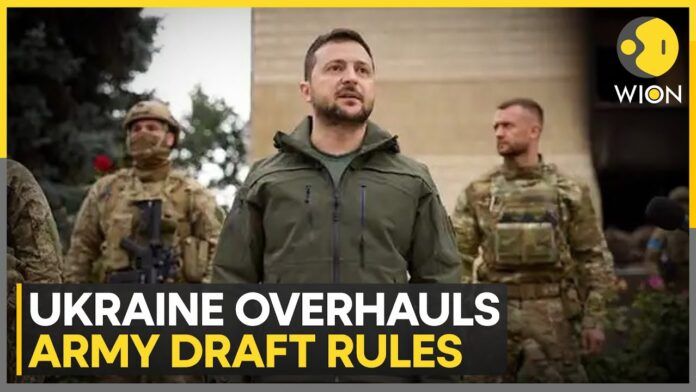In a bid to strengthen its forces, Ukraine’s Parliament has passed new legislation to improve troop mobilization as Russian forces intensify pressure in the East
In a crucial legislative move, Ukraine’s parliament has recently passed a bill aimed at streamlining the military draft process to bolster its armed forces. This decision comes more than two years after Russia’s full-scale invasion, highlighting the ongoing severe military pressures Ukraine faces, particularly in the eastern regions.
General Yuriy Sodol, addressing the parliament, underscored the dire situation by reporting that Russian forces outnumber Ukrainian troops by up to ten times in critical battle zones. The newly passed bill is seen as a strategic step to mitigate these disparities by enhancing Ukraine’s military readiness and capabilities. “Pass this law and the Ukrainian armed forces will not let down you or the Ukrainian people,” General Sodol stated, underscoring the bill’s importance.
The legislation, which garnered significant support with 283 votes out of 450, simplifies the registration and data collection processes for potential draftees, removing previously proposed harsh penalties for draft dodging that had led to widespread public dissatisfaction. The absence of these penalties in the final bill reflects a response to public opinion and a more nuanced approach to enhancing troop numbers.
Moreover, the bill eliminates a clause that previously allowed demobilization after 36 months of service, thus extending the potential duration of military commitments during wartime. This change suggests a shift towards maximizing available manpower amidst ongoing and intense military engagements.
While the bill still awaits President Volodymyr Zelenskyy’s signature to become law, its passage sends a strong message to international allies and partners regarding Ukraine’s commitment to defending its territory and the urgency of continued support in terms of weaponry and military aid.
The context for this legislation is a backdrop of increasing challenges on the battlefield, where Ukrainian forces continue to face well-equipped Russian advances. The military’s needs are acute, not just in terms of manpower but also regarding essential supplies like artillery shells.
Debate and discussion took months, with more than 4,000 amendments proposed and subsequently mostly rejected, reflecting the complexities and sensitivities involved in altering military mobilization laws during ongoing conflict. The lengthy process highlighted the challenges in balancing the urgency of military needs with political and public concerns about conscription and military service.
This legislative development occurs alongside other critical changes, such as a recent reduction in the conscription age and proposals to allow certain convicts to join the military, pointing to Ukraine’s broader strategic adjustments in response to the prolonged and escalating conflict with Russia.
As Ukraine continues to adapt its military strategies and policies, the support and coordination of its citizens and lawmakers remain pivotal in navigating the path forward in this protracted conflict, aiming to secure and stabilize the nation against overwhelming odds.
